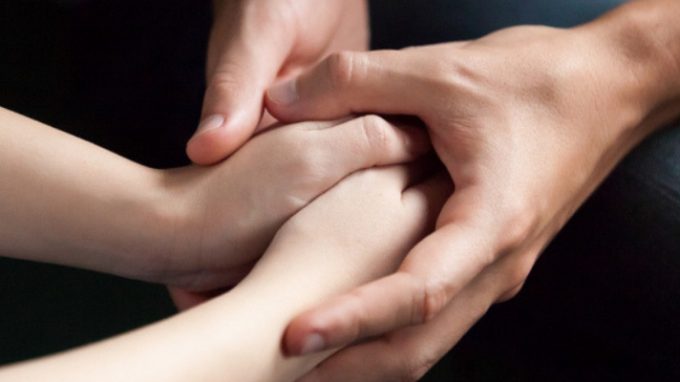Having a miscarriage is one of the most emotionally painful things that a woman can experience and finding ways to cope as a couple may not always come easily.
A miscarriage is the spontaneous loss of an embryo before the 20th week of pregnancy. According to Planned Parenthood one in two women experience a miscarriage in their lifetime. But, many are never aware that it occurs.
Why a Miscarriage May Occur
According to studies, around 50 % of early pregnancy losses are due to chromosomal abnormalities within the embryo or fetus.
A few other causes may be due to:
- Improper implantation of the egg
- Damage to the placenta or the uterus
- Hormonal health issues
- Maternal health issues
- Genetic defects from the paternal side
- Malformed sperm
However, some causes for miscarriage are still a mystery. About one percent of women may experience recurrent miscarriages.
Emotions You May Feel
After a miscarriage you may experience a roller coaster of emotions. Your body will be going through hormonal shifts as it is readjusting to the loss of a pregnancy. These hormones can intensify the emotions you may be feeling.
How Men and Women Cope Differently
Women tend to be more likely to seek support from others after a loss. While men tend to gather facts and and focus on problem solving. They end up feeling helpless and inadequate when they can’t solve their partner’s problem. They are usually less likely to participate in support groups or share their feelings. Often a man may see that talking about the miscarriage upsets the woman and he may avoid the topic. However, this does not mean that men do not grieve the loss as well.

How to Cope As a Couple
It is important to be respectful and sensitive to each other’s feelings and needs. Try and share your emotions and keep the lines of communication open. It is important to accept that you are both different and may cope or grieve differently.
- Find a Support Group – A way to help mentally cope with a miscarriage is to find a good support system. As a couple finding others who can help you navigate through your pain or who have been through it before can help. Sometimes it may seem that you and your spouse are at very different points of your grief, having others who understand what it is like can help you find a connection through the process. A group can help you to gain new insight and to lean on each other for support.
-
- There are online support groups available, if you do not wish to seek out help from your friends or family. If you are feeling overwhelmed consider seeking help from a counselor or therapist to help you through the process.
-
- Let it Out – The feelings that you are having are normal and understandable. Rather than keeping it all inside, it is better to discuss your thoughts and get it all out in the open. This will help with your grieving process. If you do not wish to speak to each other about it, perhaps try writing your thoughts down in a journal or a letter.
- Give Yourself Time – Do not feel like there is any set amount of time to grieve your loss. It is natural to feel angry, anxious, guilty, hopeless, sad, and confused. Grief is not something that can be rushed.
- Its Okay to be Sad – It is okay to feel sad, but try not to let it control you. It is normal to feel alright one day and sad the next. You will survive this. Try and find things that will bring you joy and laughter as they can help with the healing process. Remember that having some joy or laughter in your life, does not discredit your loss.
- Remember Your Baby – Do something to help remember your baby by. Coping and healing with your loss does not mean forgetting. You may want to do something tangible to represent your loss. This could be naming your baby, selecting a piece of jewelry with an initial or birthstone, donate to charity, or plant a tree.
- Don’t Rush Back In – It is important to allow time for you both to grieve your loss before trying to get pregnant again. Your OB-GYN will help let you know once your body is ready to try again. But your hearts may need more time to heal. A future pregnancy won’t replace your loss, so it is best to make sure that you are both emotionally ready to move on when the time comes to try again.
Lean on Each Other
In the end, try to remember that you are not alone and you will get through this. Losing a pregnancy is never easy regardless of how far along you were. Give yourselves the time that you need to work through it. Remember that as you are healing you are not forgetting your baby, you are just finding a way to keep going.





